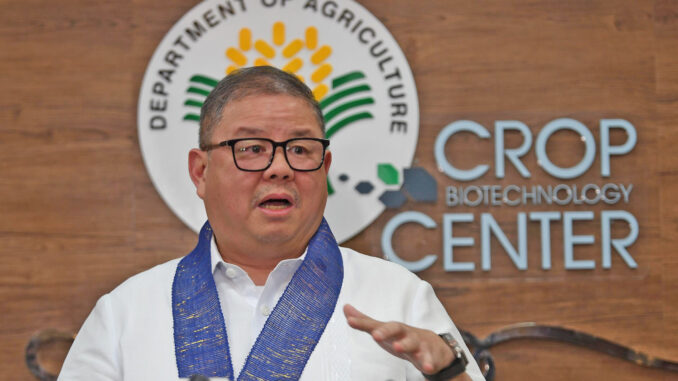
The Department of Agriculture (DA) expressed cautious optimism over the drop in the September inflation, primarily attributed to a decrease in food prices, particularly rice.
Inflation in September decelerated to 1.9 percent, the lowest rate since May 2020.
This decline was largely driven by a reduction in food inflation, with rice prices falling to 5.7 percent from 14.7 percent in August.
Rice, a staple food, constitutes a significant portion of the consumer basket.
“Food prices have significantly declined from the highs posted in the same period last year, with vegetables such as onion and tomatoes, sugar, fish and rice leading the way with the help of various interventions of the Marcos administration,” said DA Secretary Francisco Tiu Laurel, Jr.
He anticipated further price reductions due to the lowered tariff on imported rice and India lifting its export ban. However, Laurel cautioned that the upcoming Christmas season could temper the decline in food prices due to increased demand.
The administration meanwhile is expecting a “broad-based and less volatile” inflation, amid the implementation of measures aimed at taming the prices of goods and services.
This was after the country’s headline inflation further slowed to 1.9 percent in September, the lowest recorded since the 1.6 percent rate logged in May 2020.
In a statement issued Friday night, Budget Secretary Amenah Pangandaman welcomed the easing of inflation, saying it shows that the current administration’s goal to bring progress to the country is within reach.
“This proves that we remain on track with our Agenda for Prosperity, with the average inflation rate now standing at 3.4 percent, well within the government’s target range of 2.0 (percent) to 4.0 percent for 2024,” Pangandaman said.
The September inflation is lower than the 3.3 percent inflation rate in August and the 6.1 percent in September 2023.
Pangandaman said the latest inflation rate is consistent with inflation trends in other Southeast Asian countries, further cementing the Philippines’ position as “one of the major key players in Southeast Asia.”
She attributed the slowdown to the big drop in rice inflation, now at 5.7 percent from 14.7 percent in August, and the steady supply of high-value crops that reduced the price of vegetables.
She assured that the Marcos administration would continue to do its best to enhance agricultural productivity, expand logistics infrastructure, ensure the efficient delivery of social services, and provide inflation-related subsidies, such as fuel subsidies for qualified public utility vehicle drivers, fuel assistance to farmers and fisherfolk, and the fertilizer discount voucher program.
The budget chief said the government would also address the impact of La Niña that may persist until the first quarter of 2025.


Be the first to comment